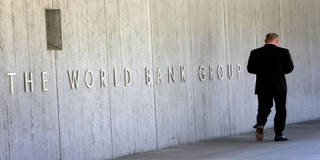Development outcomes depend on poor countries’ external economic environment, which is shaped by the policies of the major economies. And when it comes to promoting sound policies, the World Bank has fallen far short in recent decades, exemplified by three major intellectual sins of omission.
CAMBRIDGE – In recent years, as the World Bank’s financing role has been eclipsed by the rise of private capital and a surge in money from China, its leaders have been desperately seeking a new mission. And interminable reorganizations, politicized appointments, and the changing priorities of successive presidents have contributed to the perception that the institution is less than functional. But can that change?

CAMBRIDGE – In recent years, as the World Bank’s financing role has been eclipsed by the rise of private capital and a surge in money from China, its leaders have been desperately seeking a new mission. And interminable reorganizations, politicized appointments, and the changing priorities of successive presidents have contributed to the perception that the institution is less than functional. But can that change?